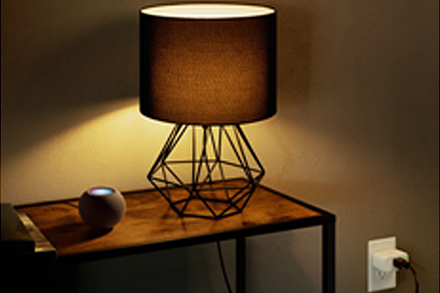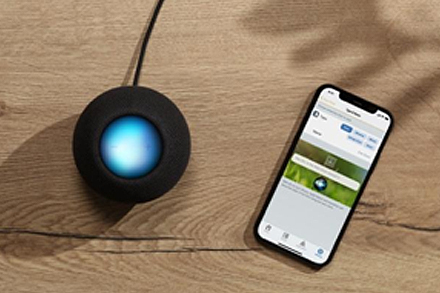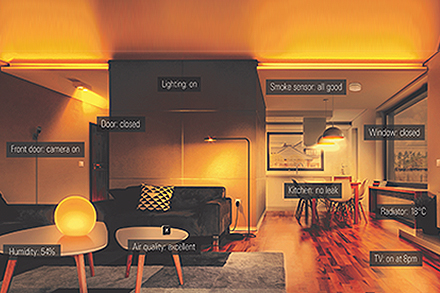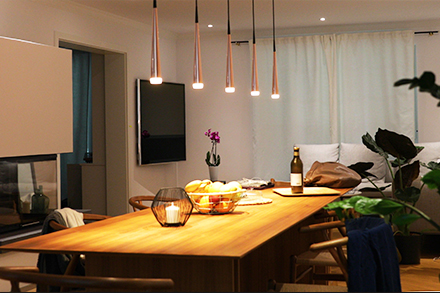THE CHALLENGE
Eve’s product development team had a number of requirements when selecting wireless technologies. First, it was critical for the solution to natively support Apple HomeKit to eliminate the need for a custom bridge or gateway and allow for easy setup and configuration from iPhone or iPad.
Bluetooth turned out to be a great choice for Eve’s low-bandwidth accessories. However, in larger flats or houses, as well as in highly insulated buildings, the standard is prone to range and response time issues. The company evaluated Thread to determine if the low-power, wireless solution could effectively address concerns related to range, battery life, and latency.
Since many Eve devices require minimal power consumption, this was a key consideration when evaluating Thread. Additionally, it was a priority for customers to have a seamless way to experience Eve Systems' products.

THE PROCESS
With Eve’s commitment to HomeKit, the company was eager to leverage technologies exclusive to that platform rather than building custom bridges and hubs. Integration with HomePod mini, Apple’s first device to support Thread technology, addressed this concern by solving the complexity of setting up a border router.
What’s more, Thread is aligned with Apple’s long-term strategy for HomeKit. Together with Amazon, Google, the Zigbee Alliance, and many other smart home accessory manufacturers, Apple has formed a working group to develop an open connectivity standard for smart home devices. The goal is to enable customers to integrate these products into their chosen system – be it HomeKit, Alexa, Google, or any other – no matter which smart home device they buy. Thread – alongside Wi-Fi and Bluetooth – is a pillar of this new standard.
Additionally, many Eve devices require minimal power consumption to provide extended battery life and Thread addresses this with its use of the power efficient IEEE 802.15.4 radio. And relative to Bluetooth, Thread connectivity offers quicker response times.

THE SOLUTION
Thread technology was designed for smart home applications to provide robust, reliable and secure connectivity between accessories. Eve, in partnership with Apple, has developed a line of HomeKit products that can communicate not only using Wi-Fi or Bluetooth, but also using Thread.
And while Wi-Fi and Bluetooth networks tend to become somewhat unreliable and challenging to manage with a large number of accessories connected, a Thread network scales easily and becomes more robust with every new accessory.
With Thread, Eve is able to offer a growing assortment of accessories to make the smart home more responsive and robust. And with HomePod mini, Thread accessories don’t need a proprietary bridge to communicate with each other.
In addition to its Eve Energy and Eve Door & Window accessories, Eve intends to extend hardware support for Thread to its entire product line, upgrading Eve accessories to connect over a fast, self-healing wireless mesh network enabled by HomePod mini.

Competitive Advantage
Eve accessories that support HomeKit over Thread offer a variety of benefits:
- No Bridge – Thread accessories don’t need a proprietary bridge to communicate with each other – they simply need a Border Router such as HomePod mini.
- Always in Reach – If one of your accessories is beyond the reach of your HomePod mini, a mains-powered accessory, such as Eve Energy, can connect it to the Thread network.
- Robust, Self-healing Network – If one node (or accessory in your Thread network) fails, another one fills in. Thread scales easily and becomes more robust with every new accessory, unlike Wi-Fi and Bluetooth networks which become more unreliable and challenging when managing a high number of connected accessories.
- Longer Battery Life – Batteries last much longer due to Thread’s extremely low power consumption.
- Future-Proof – Thread, alongside Wi-Fi and Bluetooth, is a pillar of the upcoming Project CHIP standard, which means Eve accessories are future-proof.
